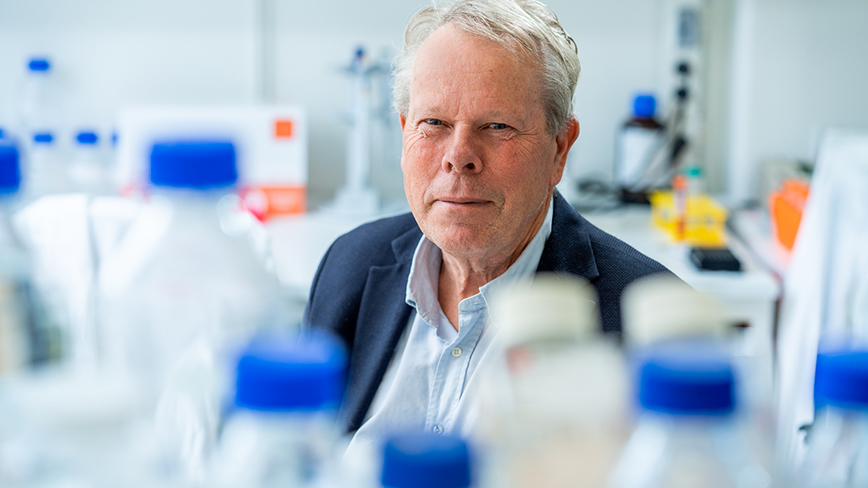Private funding enables life-saving research

KTH professor Mathias Uhlén is the man behind one of the largest research projects in Sweden aimed at preventing and treating the diseases of our time. A dream that is no longer too distant.
"Without funding from private foundations, I would not have been able to conduct this kind of bold research," he says.
Since 2003, Mathias Uhlén has been funded by the Knut and Alice Wallenberg Foundation to map the 20,000 unique human proteins. A choice that contributed to Sweden being at the forefront of medical biotechnology and life science.
"The Protein Atlas was originally intended to be conducted in England, but at the last minute, the plans were changed. ‘Over the past twenty years, I have had one of the largest research groups in Sweden, entirely funded by private foundations. Sweden is unique in this context; it is really only the United States and Sweden that have such long-term and significant private funding of research," says Mathias Uhlén, professor of microbiology at KTH and serial entrepreneur.
In his work with the protein atlas, Mathias Uhlén has mapped the body's building blocks to better understand diseases so that new drugs can be developed. Today, it is one of the world's largest biological databases used by universities and pharmaceutical companies.
"I don't think there is any drug in development right now that hasn't used the protein atlas; there are about ten researchers a minute who enter the database," says Mathias Uhlén.
Developing diagnostic methods for the early detection of diseases
Using the protein atlas as a basis, Mathias Uhlén is working on developing new diagnostic methods for the early detection of diseases, thereby increasing the chances of survival. In the Alpha Cell research project, which is funded by the Wallenberg Foundation and jointly run by the national research centre SciLifeLab and KTH Royal Institute of Technology, AI technology is used to understand how the body's smallest building blocks work and how diseases arise at the cellular level.
"At the moment, we are mainly focusing on around 60 diseases, including cancer, cardiovascular and autoimmune diseases. Today, three drugs are in clinical trials, and the hope is that they will be approved within one to two years," says Mathias Uhlén.
This work has been extended to research on blood analyses, where Mathias Uhlén is investigating what information a simple blood sample can provide - a project started with support from the Erling-Persson Foundation. Using mathematical algorithms and AI, they have succeeded in identifying the amounts of proteins in the blood that can, for example, reveal cancer before the disease has occurred. The dream is that one drop of blood can analyse hundreds of diseases. A dream that is five to ten years away but which will be revolutionary, and in which he hopes Swedish research can remain at the forefront.
Wants to continue developing precision medicine
Mathias Uhlén, a researcher, also has some 20 start-up companies on his CV, and he is very much involved in them. But even though he can call himself a serial entrepreneur, it is research that he is most passionate about.
"I enjoy wearing both hats, but I probably spend 80 per cent of my time on research and 20 per cent on entrepreneurship. For me, it's important that research is used and becomes an innovation that benefits society and people."
However, he has no plans to step down. Not as long as he has the health, energy and desire, he says.
"It's incredibly fun and satisfying to work on the front line of international research, but you have to give 140 per cent - and you have to deliver. It would never have been possible without great teamwork. I've been really lucky to work with great people and in a great organisation," he says.
His goal for the next five years is to continue developing precision medicine, detecting and diagnosing diseases earlier and helping patients get the right treatment at the right time. He also hopes to capitalise on the rapid developments in AI to understand the building blocks of the human body even better.
"When you work with research involving individuals, I always say that it is important to have ‘something for the bread and something for the head’. You need projects that are more secure in order to dare to take on projects that are a little more revolutionary. I am incredibly grateful that the private foundations have made this work possible. I think it's one of the reasons why Sweden is so successful in medical research today."
